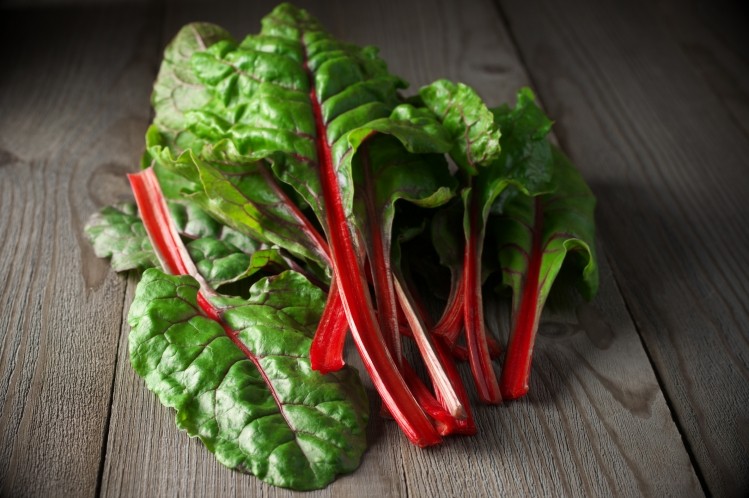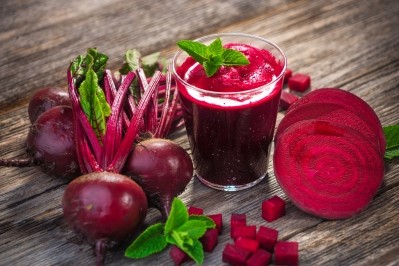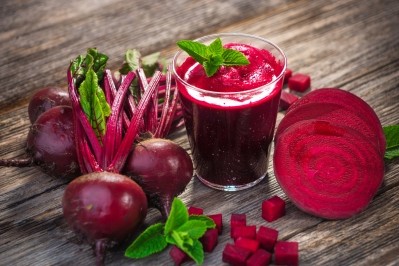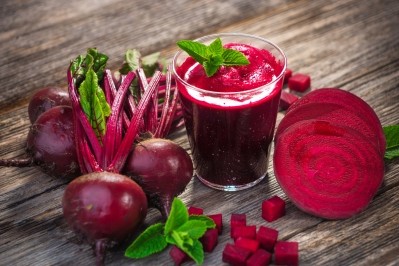Juice from beet leaves and stalks may offer cholesterol benefits: Brazilian study

Data from a pilot study published in Nutrition is said to be the first to explore the potential cardiovascular benefits of juice from beet leaves and stalks on blood lipid levels and blood pressure (BP).
“The most important finding in this study was that the BLS [beet leaves and stalks] juice was able to attenuate the reduction of HDL-C and the increase of BP induced by a high-fat meal,” wrote researchers from the Federal University of Goiás, University of Campinas, and the University of Brasília.
Beet science
The study adds to a growing body of science supporting the potential cardiovascular benefits of beets. Much of the data to date has focused on beetroot, linked to the nitrate content. The last decade has brought understanding of the importance of nitric oxide in biological processes, including regulation of blood flow, blood pressure, cellular signaling, glucose homeostasis, and tissue responses to low oxygen levels (hypoxia).
In addition, epidemiological studies have linked the intake of green leafy vegetables to a reduction in the risk of cardiovascular disease.
Study details
Thirteen people with abnormal lipid levels (dyslipidemia) participated in the randomized double-blind, placebo-controlled, crossover pilot study. Participants consumed a high fat meal with placebo (flavored water) or low or high doses of the beet leaf and stalk juice. The low dose contained 32 mg of polyphenols, while the high-dose group received 77.5 mg of polyphenols. A one-week washout period followed each intervention.
Results showed that triglyceride levels increased and HDL cholesterol levels decreased in the placebo group, but these changes were attenuated in the beet juice groups.
Diastolic blood pressure also decreased within the groups that received the beet juice, but no other changes were observed for other biomarkers, including glucose, insulin, nitrite and nitrate levels.
“Therefore, beet leaves and stalks presented therapeutic potential once their juice was able to attenuate the reduction of HDL-C induced by a high-fat meal,” concluded the researchers.
Source: Nutrition
Volume 65, Pages 68-73. doi: 10.1016/j.nut.2019.03.004
“Organic beet leaves and stalk juice attenuates HDL-C reduction induced by high-fat meal in dyslipidemic patients: A pilot randomized controlled trial”
Authors: A.P.O. Gomes et al.








